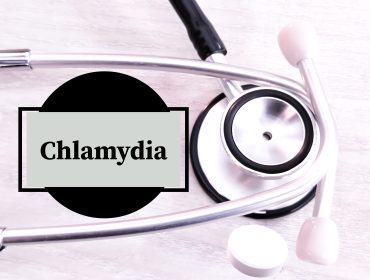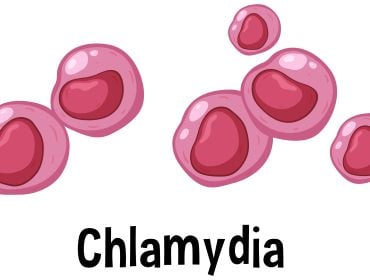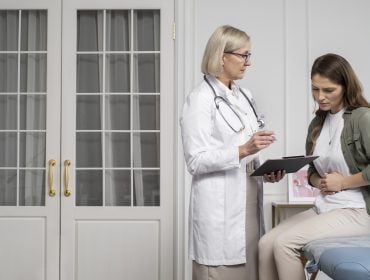Can You Get Chlamydia From Kissing?
Chlamydia is primarily a sexually transmitted infection, not typically contracted through non-sexual contact such as kissing.
However, concerns arise when intimacy enters the equation, potentially blurring the lines of transmission and causing unease about STD exposure. If you suspect that you’ve encountered chlamydia, regardless of the means, seeking professional testing through services like STDCheck is a prudent course of action to ensure your health.
Exploring Chlamydia Transmission
Chlamydia trachomatis, the bacterium responsible for chlamydia infection, generally requires a specific milieu to thrive, which includes the mucous membranes of the urogenital tract. Given that kissing does not involve these areas, the likelihood of transmitting the pathogen via this route is exceedingly rare. However, understanding the broader scope of transmissibility is crucial, particularly as it pertains to other potential contact points during intimate encounters.
When considering the various pathways for STI transmission, it’s important to apply a “hierarchy of risk” framework. Though the risk may be negligible through casual contact, such as a peck on the lips, it is not zero, particularly in the context of conjugating biological fluids during more passionate exchanges. In such cases, while the risk remains low, the possibility of Chlamydia residing in the throat, and thus being transferred through saliva, cannot be categorically discounted.
The Kissing Controversy
The prospect of contracting chlamydia through kissing is a subject shrouded in misconceptions and uncertainty.
Oral transmission of chlamydia is less common, yet not an impossibility, calling for awareness and preventive strategies.
While intimate contact involving mucosal surfaces heightens transmission risk, kissing often lacks the direct exposure necessary for chlamydia transfer. Despite kissing’s low transmission odds, vigilance remains prudent, especially given the often asymptomatic nature of chlamydia, concealing its silent spread.

Recognized Routes of Infection
Understanding how chlamydia is transmitted is crucial for prevention and health maintenance.
- Sexual contact: Unprotected vaginal, anal, or oral sex with an infected person poses a significant risk.
- Mother to newborn: During childbirth, an infected mother can pass the bacteria to her baby.
- Sharing of sex toys: If used with an infected individual and not properly sanitized, the infection can be transmitted.
- Direct exposure to mucosal membranes: Contact with the mucous membranes of an infected individual, such as during oral sex, can lead to infection.
While transmission through kissing is largely improbable, it cannot be entirely ruled out in scenarios of atypical infection. For absolute clarity, direct sexual contact remains the predominant method of spreading chlamydia, a fact backed by a plethora of scientific evidence.
Chlamydia Symptoms to Watch For
Chlamydial infections can begin subtly, evoking mild reactions that often go unnoticed. It is imperative to heed any unusual bodily signals, even those that appear benign. In the incubation phase, chlamydia might elicit symptoms mirroring less serious conditions, like a yeast infection or urinary tract infection, making self-diagnosis precarious and often incorrect.
Therefore, conducting a critical self-evaluation of your symptoms is essential. Initial signs can include atypical genital sensations or subtle changes in urinary patterns, warranting professional attention.
Noticing changes in your body’s norm, such as increased urgency or frequency of urination, might necessitate further investigation. Similarly, inexplicable genital discomfort should not be dismissed.
Prompt recognition and testing are vital. Should these early symptoms arise, an accurate assessment through clinical testing can confirm a chlamydia infection and enable timely treatment.
Assessing Your Risk Factors
When considering the likelihood of contracting chlamydia through intimate contact, it is imperative to evaluate personal risk factors, such as the number of sexual partners, the use of barrier protection like condoms, and the sexual health history of those partners. These factors exponentially increase the probability of exposure to chlamydia and other sexually transmitted infections (STIs).
In circumstances that raise suspicion of possible exposure to chlamydia, even in the absence of symptoms, seek out confidential testing through services like STDCheck. Such preemptive action facilitates early detection and treatment, thereby safeguarding your health and that of your partners.
Evaluating Intimate Encounters
When engaging in intimate encounters, awareness of transmission routes is fundamental to your well-being. Contrary to popular belief, chlamydia is primarily transmitted through sexual fluids and not skin to skin content like herpes, raising important questions about direct oral contact and the risk of kissing. Kissing alone is unlikely to transmit this bacterial infection. However, consider that transmission typically involves contact with sexual fluids where the bacteria are present.
Certainly, being informed about how STIs spread is crucial, particularly as some infected individuals may carry the bacteria asymptomatically and unknowingly transmit it.
While oral contact may carry a lower risk, participating in any form of unprotected intimate activity or oral sex activity increases vulnerability to several STIs. Recognizing this can guide decisions about sexual practices and the necessity of periodic screening. If you have doubts or concerns about exposure to chlamydia, proactive testing through reliable services like STDCheck is advisable. They offer a range of tests, ensuring confidentiality and peace of mind.
Understanding Chlamydia’s Prevalence
Chlamydia remains the most reported bacterial sexually transmitted infection (STI) in the United States. Its spread is often due to the fact that it can be asymptomatic, especially in women.
Indeed, the Centers for Disease Control and Prevention (CDC) document a staggering number of Chlamydia trachomatis infections annually. This high incidence correlates with the bacteria’s capacity to be transmitted through various forms of sexual contact, which includes vaginal, anal, and oral sex. Because individuals with chlamydia can remain symptom-free, they may unknowingly pass on the infection to sexual partners.
Furthermore, this asymptomatic nature poses a significant public health challenge. Regular screening is imperative, as chlamydia can lead to serious reproductive health complications if left untreated, including infertility in both men and women.
In light of these facts, it becomes paramount to access dependable diagnostic services if there is even the slightest suspicion of chlamydia exposure. Services like STDCheck facilitate discreet and accurate testing, without the need for traditional healthcare settings. Their utilization can be a pivotal step in preserving one’s sexual health and preventing the further dissemination of this common yet preventable infection.

Your Next Steps After Exposure
In the event that you believe you may have been exposed to Chlamydia trachomatis, it’s crucial to take prompt and responsible action. While the transmission of chlamydia through kissing is highly unlikely, if you have engaged in sexual activities with a person whose STD status is unknown or if they have confirmed chlamydia, seeking testing is a sensible precaution. Turn to a service like STDCheck, which provides confidential, accurate, and fast testing for chlamydia and other sexually transmitted infections. By leveraging such services, you can obtain results swiftly and, if necessary, commence any recommended treatment without delay.
Seeking Reliable Testing
Discovering your sexual health status should never be a labyrinthine ordeal. STDCheck simplifies this essential health maintenance aspect, delivering clarity with expedience and privacy.
Your health decisions must be informed by reliable and prompt information in situations of suspected STI exposure. STDCheck provides that critical information, empowering you to act responsibly and manage your sexual health proactively. With over 4,500 testing centers nationwide, finding a nearby facility is effortless, ensuring that the path from suspicion to confirmation—and, if necessary, to treatment—is as seamless and stress-free as possible.
Understanding Treatment Options
Upon receiving a positive test result for chlamydia, it’s imperative to commence treatment as swiftly as possible. The standard regimen involves antibiotics such as azithromycin or doxycycline, known for their efficacy in eradicating the infection. Strict adherence to the prescribed medication schedule is crucial to ensure complete clearance of the bacteria.
If partners are involved, they must be informed as well – they need to undergo testing and potentially necessary treatment to prevent reinfection or further transmission of the bacteria. Open communication is essential in managing sexually transmitted infections responsibly.
Regular follow-up is critical to confirm eradication.
Medically Reviewed by Erin Zinkhan, MD, BSBE on August 2, 2023
Secure and Confidential
STD testing services
The fastest results possbile - available in 1 to 2 days

Tagged
Categorized As
Author: STD Check Editorial Team
At STDCheck.com, we go to great lengths to ensure quality content. We’re using our own collection of data. It is not bought or made up for “click-bait” purposes. We don’t entice traffic with cheesy graphics or raunchy headlines. Our information is to promote STD testing, educate people, let go of social stigmas, and bring awareness. We also provide a completely confidential atmosphere through private testing. When we produce an article, it is fact-based. We check it with medical advisors that approve it. Our staff consists of doctors and other medical professionals who peer review the content we make available on STDCheck.com. From all over the world, we have sourced the best and the brightest content developers, including medical professionals, marketing engineers, data scientists, content specialists, and media relations.




